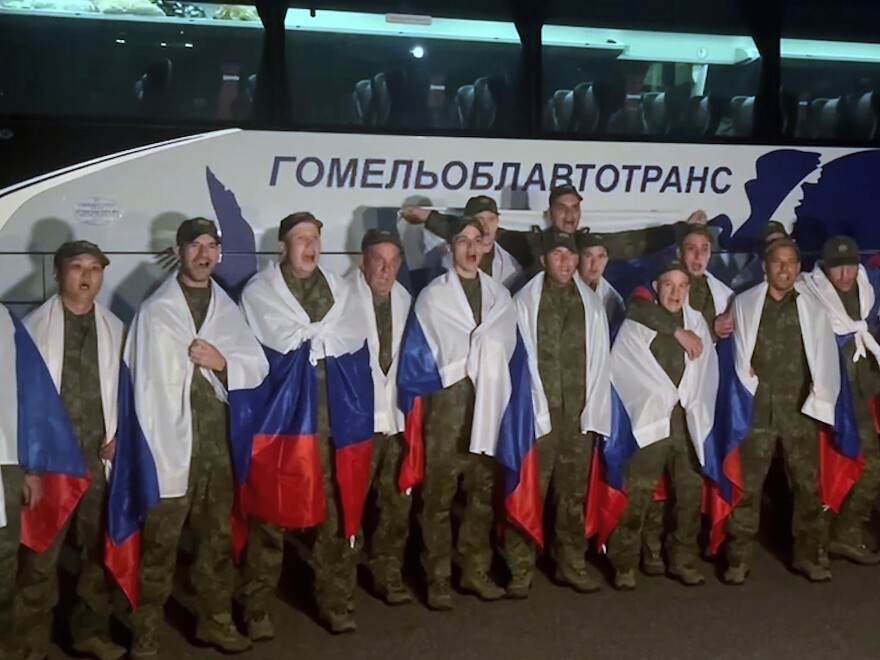Updated @ 6:06 PM EDT on July 23, 2025
KYIV and Moscow Ukraine suggested that the presidents of the two nations meet this summer with President Trump and the leader of Turkey to discuss a settlement to the conflict, and Russia has agreed to trade more prisoners with Ukraine.
However, despite President Trump’s recent threats to impose severe new economic consequences on Moscow should it not reach a ceasefire agreement by early September, the two sides made little headway toward a ceasefire accord during this week’s third round of Russia-Ukraine talks in Istanbul.
Rustem Umerov, the chairman of the Ukrainian delegation, stated that he suggested that by the end of August, a meeting be held with Turkish President Recep Tayyip Erdogan, Russian President Vladimir Putin, Ukrainian President Volodymyr Zelenskyy, and President Trump.
Vladimir Medinsky, the head of the Russian delegation, however, reiterated earlier Kremlin claims that Putin and Zelenskyy cannot meet unless Russia and Ukraine have made significant strides toward an accord.
Medinsky stated that military and, for the first time, civilian inmates would be included in prisoner swaps with Ukraine. The defense ministries of both nations declared on Wednesday that they had exchanged military prisoners of war.
President Zelenskyy publicly challenged Russia to expedite negotiations in order to start this most recent round of talks. Mass prisoner swaps have been the outcome of the meetings that started in May, but they were unable to halt the violence.
“Everything should be done to achieve a ceasefire,” Zelenskyy stated in a speech to the public on Tuesday night prior to the most recent negotiations in Istanbul. “The Russian side should stop hiding from decisions.”
According to Zelenskyy, the repatriation of prisoners and the thousands of Ukrainian youngsters kidnapped by Russian forces are still top humanitarian concerns for Kyiv. However, he stated, “a meeting at the leadership level is needed to truly ensure peace lasting peace.”
Dmitry Peskov, the spokesperson for the Kremlin, talked down the possibility of a ceasefire on Tuesday, pointing out that Kyiv and Moscow were still “diametrically opposed” in their views on how to end the conflict.
“There is no reason to expect any breakthroughs in the category of miracles it is hardly possible in the current situation,” Peskov stated.
“We intend to pursue our interests, we intend to ensure our interests and fulfill the tasks that we set for ourselves from the very beginning.”
Russian demands include a neutered Ukrainian military, the formal ceding of Ukrainian territory that the Russian military claims but does not completely control, and a halt to Ukraine’s aspirations to join NATO.
In the midst of U.S. efforts to broker a truce, Trump has become increasingly irritated with Putin in particular over the ongoing Russian drone and missile attacks on Ukrainian cities.
Earlier this month, Trump told reporters that Putin had “surprised a lot of people.”
“He talks nice and then he bombs everybody in the evening,” remarked Trump.
Trump this week approved the sale of American weaponry to Ukraine with the stipulation that European NATO partners would buy the weapons and supply Ukraine with arms, seemingly marking a significant change in U.S. policy.
Additionally, Trump threatened to impose more “severe” economic sanctions on Russia if Moscow did not commit to a peace agreement “in 50 days,” which is equivalent to an early September deadline.
However, according to State Department spokesman Tammy Bruce, that timeline was contingent upon Trump’s perception of the course of peace negotiations.
Bruce warned reporters during a briefing on Tuesday that “I would caution when the president notes a block of time or a window that it could be any time in that window.”
“If there’s a genuine negotiation happening and it’s in motion, then things can change rapidly,” she said. “So it’s never static for most of us.”
Russia has responded warily to Trump’s pressure thus far.
Trump has been seen as “very serious” by the Kremlin, but Moscow needs time to “analyze” his positions. Putin has not yet made a public statement on the subject.
Given that the Republican president’s annoyances with Russia today might be directed at Ukraine tomorrow, Moscow analysts say the Kremlin has little desire to agitate Trump.
“First of all, we already know his style — not everything he says will be implemented,” Fyodor Lukyanov, editor of Russia in Global Affairs magazine and a former Kremlin adviser, stated in an interview with NPR.
In any case, the political elite in Russia believes that U.S. assistance will not be as strong as it was at the beginning of the conflict, Lukyanov continued.
“The conclusion is the level of military and materiel support from U.S. to Ukraine will not reach the level as it was during the Biden administration,” he stated.
“And if so,” he continued, “it cannot seriously change the equation on the battlefield.”
Copyright 2025 NPR






